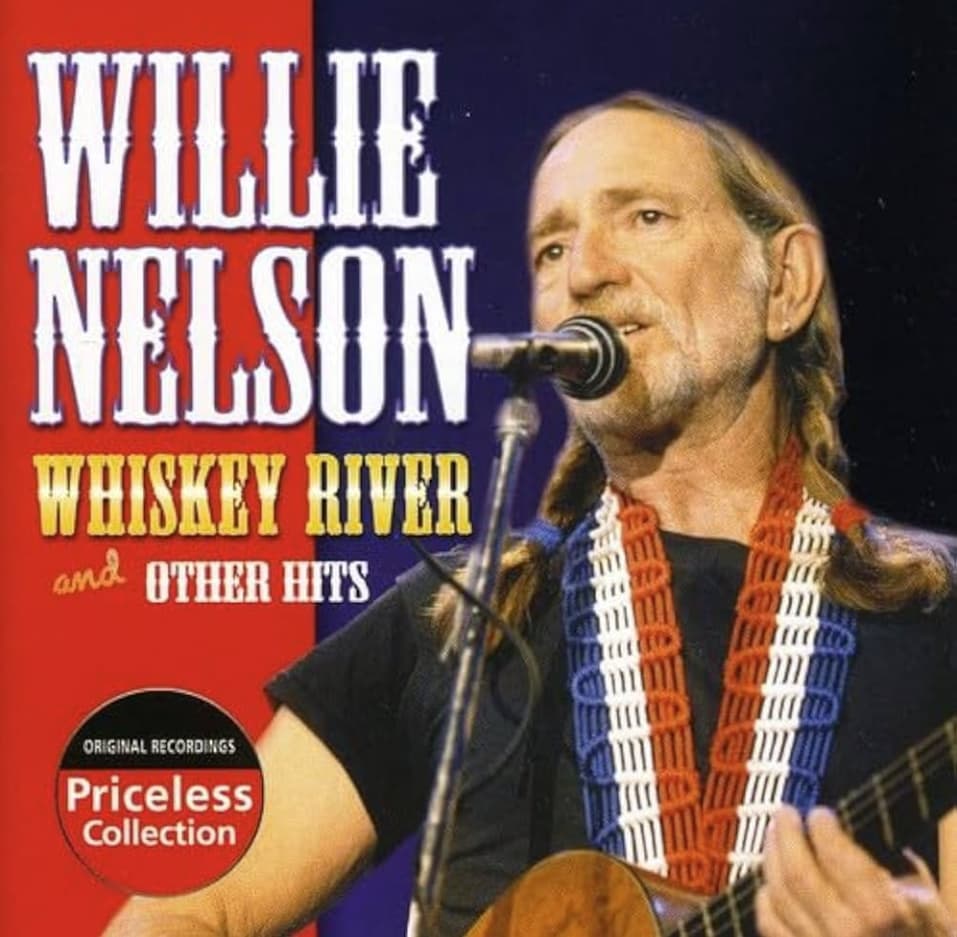
“Whiskey River”: A Haunting Ode to the Troublesome Comfort of the Bottle
Ah, the late 1970s. For many, it was a time of shifting sands, a decade that saw the last embers of the counter-culture fade into the emerging sounds of disco and punk. But for a certain generation, and particularly for those with a penchant for the soulful storytelling that only country music can offer, it was the era when a seasoned troubadour, a man whose very voice seemed to carry the weight of countless dusty roads and lonely nights, truly cemented his legend. I’m talking, of course, about Willie Nelson, and a song that became as synonymous with him as his braided pigtails and a well-worn guitar: “Whiskey River.”
When “Whiskey River” flowed onto the airwaves, it wasn’t just another tune; it was an instant classic that resonated deeply with the common man, and in turn, made a significant splash on the charts. While it wasn’t a number one smash, it carved out a respectable and lasting presence, reaching a very respectable number 12 on the Billboard Hot Country Singles chart in 1978. For a song that perfectly encapsulated the bittersweet dance between solace and sorrow found within a glass, that was a powerful statement. Its presence in the Top 20 wasn’t just about commercial success; it was a testament to its profound connection with an audience that understood its raw, unvarnished truth.
But the story of “Whiskey River” actually predates Willie Nelson‘s definitive rendition. The song was originally penned by Johnny Bush, a fellow Texas country artist and a good friend of Willie’s, who released it in 1972. While Bush’s version certainly had its merits, it was Nelson’s interpretation, infused with his signature laid-back delivery and a lifetime of lived experience, that truly unlocked the song’s potential and etched it into the annals of country music history. It became a cornerstone of his live performances, an almost prayer-like invocation that would open his shows for decades, instantly setting the mood for an evening of introspection, laughter, and perhaps a few shared tears.
What is it about “Whiskey River” that continues to hold such a grip on our collective consciousness, even all these years later? On the surface, it’s a lament, a plea to a liquid companion to help forget the pain of a lost love. The lyrics, simple yet profound, speak of a protagonist who finds himself adrift, seeking refuge in the flowing current of whiskey to wash away the memories that haunt him. “Whiskey River, take my mind / Don’t let her memory torture me,” he impls, a desperate cry from a wounded soul. It’s a raw, honest portrayal of addiction not as a moral failing, but as a misguided attempt at healing, a crutch for a heart that simply can’t bear the weight of its own grief.
Yet, there’s a deeper layer to “Whiskey River” that transcends the immediate sorrow. It speaks to a universal human experience: the search for comfort in the face of adversity, the yearning for escape when life’s burdens become too heavy to bear. For many, particularly those of us who have weathered a few more storms than we care to count, the song evokes a sense of empathy, a recognition of the flawed yet relatable ways we sometimes cope with heartache. It’s not a celebration of excessive drinking, but rather a somber reflection on the allure of fleeting solace, and the often-unintended consequences that follow.
Think back to those late nights, perhaps after a long week, or after a particularly difficult day. The quiet clinking of ice in a glass, the amber glow of the liquid, the way it seems to momentarily dull the sharp edges of reality. Willie Nelson, with his weathered voice and understated delivery, doesn’t judge; he simply presents the scenario, allowing us to project our own experiences and understanding onto the narrative. He embodies the weary traveler, the brokenhearted lover, the man who has seen too much and felt too deeply, and who, for a brief spell, finds a deceptive peace in the bottom of a bottle.
“Whiskey River” is more than just a song about drinking; it’s a masterclass in emotional storytelling, a vivid painting of a soul in turmoil. It reminds us of the fragility of the human heart, the enduring pain of loss, and the sometimes-dubious comforts we seek to navigate the turbulent waters of life. It’s a timeless melody that continues to resonate because, in its poignant honesty, it holds up a mirror to our own vulnerabilities, our own struggles, and our own sometimes-desperate search for a moment of peace, even if that peace is as fleeting as the last drop in a glass. It’s a testament to Willie Nelson’s genius that he could take a song of such profound melancholy and imbue it with a sense of enduring beauty, making it a beloved anthem for generations.